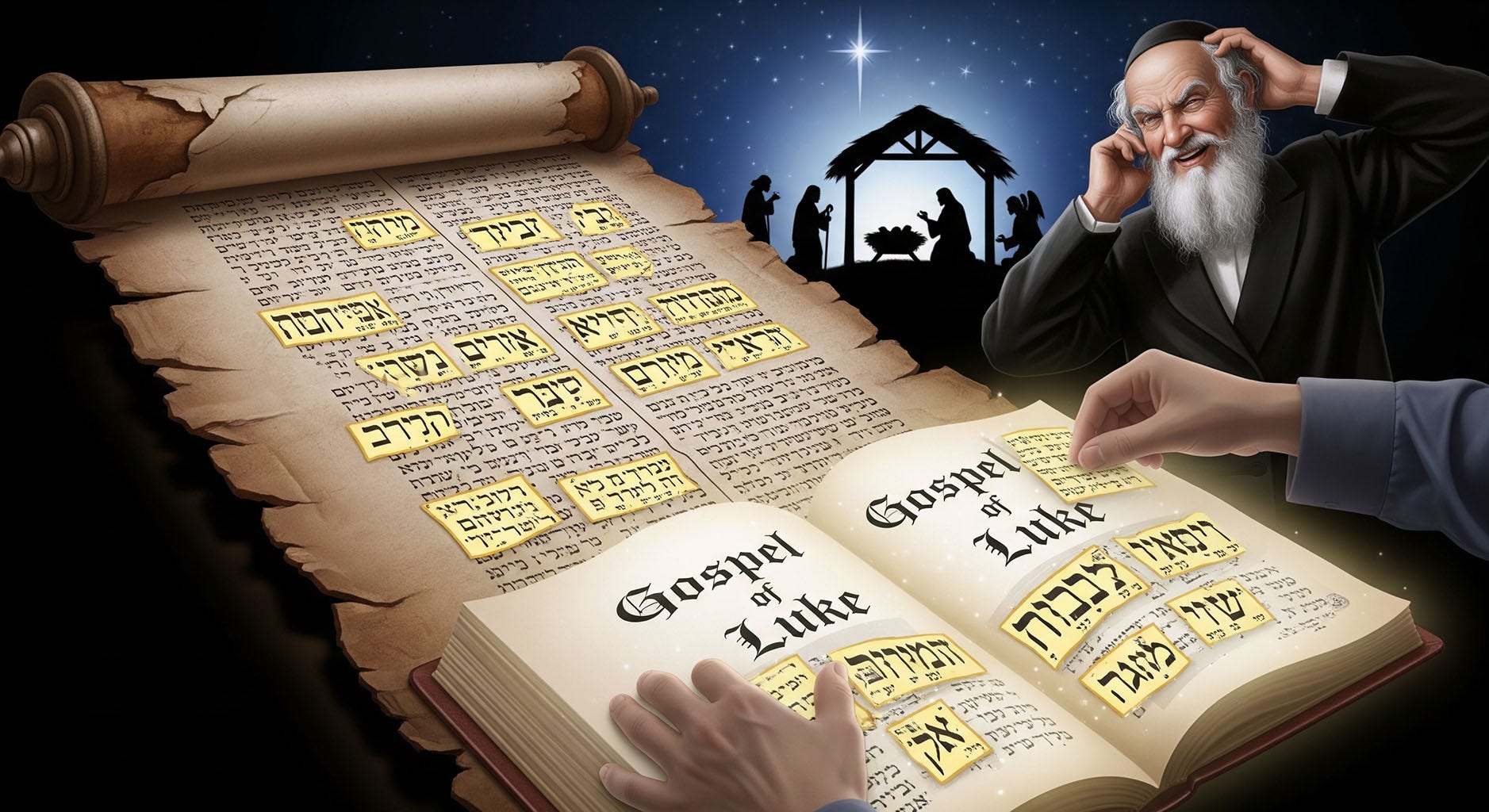Luke’s Mess of Fulfilled Prophecies That Weren’t
How Luke twisted old scriptures into “prophecies” about Jesus that no Jew would have recognized

The story goes that Jesus fulfilled countless prophecies in the Hebrew Bible, yet Jews didn’t believe him and eventually had him killed for blasphemy. But take a closer look and you’ll see it’s not prophecy being fulfilled — it’s prophecy being con…


